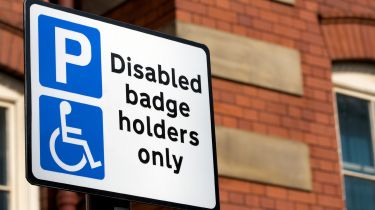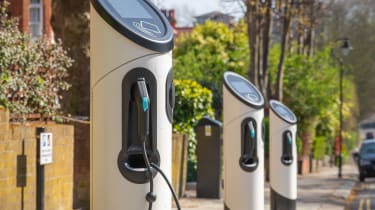Disabled driver survey reveals potential barriers to EV adoption
Enable project surveyed 1,000 drivers with a disability about switching to EVs; 71% voiced concerns about accessible infrastructure

A joint project run by Motability and UK Power Networks has found that over two-thirds of disabled drivers plan on switching to an electric car in the next decade, but that over 70% of them have concerns about the accessibility of charging infrastructure.
Almost 80% of those who took part in the Project Enable survey said they expect disabled bays to have charging points installed next to them. Several problems with current EV charging infrastructure have been pointed out by campaigners, including parking bays that are too small, few dropped kerbs making it difficult to get close to charging equipment and charging-point plugs that are too high to reach for wheelchair users.
Project Enable has so far engaged with 20 local authorities, the Office for Zero Emission Vehicles (OZEV), Transport for London (TfL) and charging-point installers to understand the current process of rolling out on-street charging for disabled customers.
The findings from the project will be used to inform local authorities’ Local Area Energy Plans, ensuring accessibility needs are considered when rolling-out public points. Findings have also fed into an Accessible Transport Information Hub, to help customers, local authorities and other parties get the information they need for accessible charging infrastructure and help facilitate the transition to electric vehicles.

Ian Cameron, head of customer service and innovation at UK Power Networks, said: “We want to ensure anyone who wants to, can make the switch to an electric vehicle and nobody is left behind in the transition to Net Zero. The first step is gaining a deeper understanding of our customers, which this study has given us. Using these insights we are advocating for accessible charging infrastructure, and are collaborating to put in place practical solutions that will make a material difference to people’s lives.”
Catherine Marris, head of innovation at Motability the charity, added: “This research shows that most disabled people are already planning to switch over to EVs, but are being held back by concerns over whether they can readily charge their cars near their homes or near their destinations. Disabled people are more reliant on cars for door-to-door journeys and have far fewer options for travel due to inaccessible transport, so it’s essential that accessibility is designed into EV infrastructure right from the start."
Paul Nicholls, parking strategy and contracts manager at Brighton and Hove City Council, said: “It’s been a pleasure working with UK Power Networks on the Enable project. Knowledge sharing and engagement with disabled groups is at the heart of the development of accessible charging infrastructures. We’re grateful for the important insights this project has given us.”
It's estimated that 1.35 million drivers with disabilities across the UK will rely on public charging infrastructure as the demand for electric cars continues to rise. Right now, many electric vehicles are available through the
Motability scheme, which helps people with a disability purchase a new car suitable for their needs and assists with conversions or adaptations if necessary.
Most Popular

EV Deal of the Day: Dacia Spring is amazingly good value at £116 per month

EV Deal of the Day: budget-friendly Ford Capri for just £234 a month
